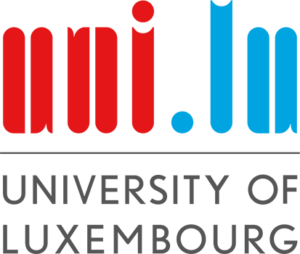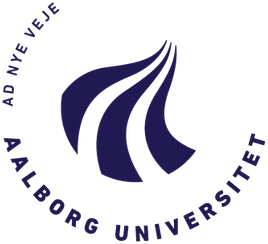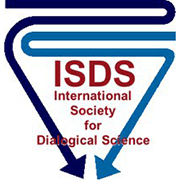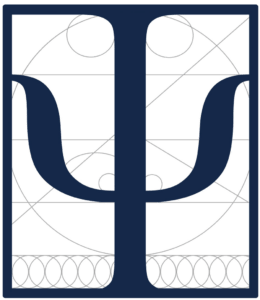Writing (Co-)Lab: ENPA Pre-Conference Workshop
Over the past five years, the European Network for Psychological Anthropology (ENPA) has cultivated virtual spaces for early-career scholars and graduate students to exchange ideas, build connections, and co-create intellectual communities within psychological anthropology. Initiatives such as the Junior Scholars Community and the Works-in-Progress Seminar have sparked engaging conversations on diverse topics in psychological anthropology, helping to break down the barriers and hierarchies between disciplines often present in formal academic settings.
Building on this foundation, we are thrilled to invite graduate students and early-career scholars to our biannual pre-conference workshop, which will extend the sense of community fostered in these virtual spaces to an in-person format. This workshop provides participants with opportunities to network, share work, and receive detailed feedback in ways that traditional conference panels rarely allow. Participants are welcome to present papers intended for the conference or other works in progress they wish to discuss.
Summer Schools
„The Annual Summer School on Phenomenological Perspectives on Cultural Psychology“ is being hosted by the Sigmund Freud University Vienna. The course consists of a mixture of lectures, practical data sessions and individual consultations with participants. It will provide participants with both theoretical background and initial practical training in the basic principles of qualitative research that can access and empirically conceptualize the phenomenon.
„The Annual Summer School on Cultural Psychology“ is being hosted by the University of Luxembourg and it is dedicated to bringing the advanced knowledge in contemporary cultural psychology to the students and to provide an arena of guidance for the implementation of that know-how into the research projects of the participant. The students learn to review critically their respective research projects in light of the frameworks of cultural psychology. Students will be encouraged to develop approaches to overcome limitations.
The Cultural Psychology Day Berlin
This annual event rotates between the Sigmund Freud University Berlin and the Business School Berlin and is co-costed by the Freie Universität Berlin. The event convened interested parties and speakers from diverse regions not only throughout Germany but Europe with the objective of facilitating the exchange of expertise and the establishment of reciprocal challenges.
The objective of the event is to stimulate interdisciplinary discourse on the potential utility of cultural theories and cultural-psychological frameworks in other areas of psychology. Through a series of workshops, participants will delve into specific topics in greater depth to facilitate a collaborative exchange. The discussions will culminate in a examination of fundamental problems and potential solutions, along with the development of future perspectives for a comprehensive integration of the approaches.
Winter Schools
The annual transdisciplinary winter school “Culture, Psychology & Qualitative Research” rotates between the Sigmund Freud University Berlin in Germany and the Aalborg University in Denmark. This event provides a unique opportunity for holistic reflection on how knowledge is shaped by social, political, and cultural factors, with the aim of promoting a more inclusive and equitable approach to knowledge creation by qualitative research approaches tailored around specific trajectories.
Participants will be encouraged to challenge traditional perspectives and foster critical thinking, ultimately expanding the inclusivity of knowledge creation. Throughout the winter school, participants will engage in interactive discussions with experts and peers, examining how knowledge is produced globally. Workshops will allow participants to collaborate and question existing paradigms, fostering deeper reflections on the ways power dynamics influence knowledge. The event will also emphasize global collaboration, encouraging participants from diverse backgrounds to share ideas and broaden their perspectives.
The International Conference on the Dialogical Self
Dialogical Self Theory (DST), originally proposed by Hubert Hermans and colleagues, instigated a world-wide development in psychology and the social sciences. According to DST, the individual self is social in origin and dialogical in its potential. The self functions as a dynamic multiplicity of I-positions in the society of mind and appropriates the voices of society and significant others. Within the functioning of the self these voices are considered to be in dialogue with each other. The study of dialogical processes is of unprecedented importance in an era in which dialogical relationships, between and within people, are at the heart of living together in a globalizing world community. This consideration has led researchers to establish an organization with the aim of facilitating communication on an international basis. Against this background the International Society for Dialogical Science was founded in June 2002. Every two years the DST hosts a transdisciplinary conference in collaboration with a different university from all over the world to exchange dialogically.
Conference of the International Society for Theoretical Psychology
The International Society for Theoretical Psychology (ISTP) is an international forum for theoretical, meta-theoretical and philosophical discussions in psychology, with a focus on contemporary psychological debates. Founded in the early 1980s, its objective is to stimulate theoretical arguments and innovations, to foster integration across areas and traditions of research, and to promote interdisciplinary and transdisciplinary approaches to psychological questions. It aims to serve as the stage for the discussion of new theoretical ideas and conceptual frameworks, for the critical engagement of different theoretical approaches, and for discussions concerning the relation of theoretical psychology to other disciplines, to the history of psychology and to the philosophy of knowledge. Every two years the ISTP hosts a transdisciplinary conference in collaboration with a different university from all over the world to exchange theory and perspective.








